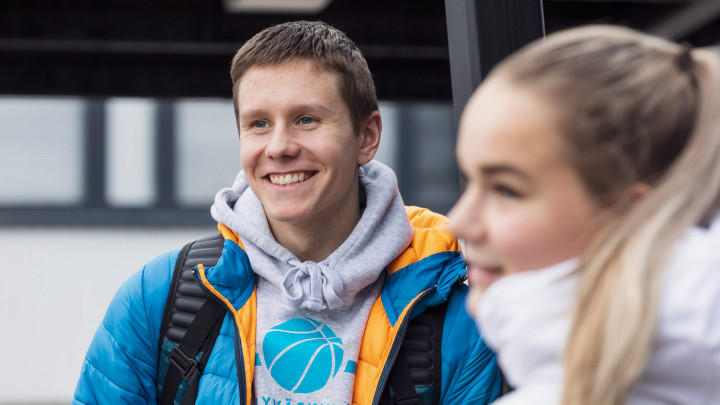Compulsory education to be extended
Compulsory education
Students in compulsory education receive the study materials they need for their vocational studies or general upper secondary education, as well as other materials necessary for their studies, such as work clothes and equipment in vocational education, free of charge for the duration of their studies. Special equipment, such as musical instruments or sports equipment, will continue to be purchased by the students themselves. Tuition and meals will remain free of charge.
Where does compulsory education take place?
Compulsory education is primarily undertaken in general upper secondary education or vocational education and training (including apprenticeship agreements). Compulsory education can also be completed via transitional phase education as defined by legislation. Basic education for adults is also suitable for completing compulsory education in certain situations.
Compulsory education ends when the young person reaches the age of 18, or when they complete an upper secondary qualification (matriculation examination, vocational qualification, or dual qualification) before that age.
What is included free of charge?
With extended compulsory education, supplies necessary for studies are free of charge for the student. Students starting their studies in Gradia’s vocational training or general upper secondary school receive free of charge for the duration of their studies the study materials required for their studies, the necessary work clothes, and equipment (such as chef’s knives, hairdresser’s scissors, etc.) and the necessary industry-specific qualifications and licence cards. On a means-tested basis, some students falling under the compulsory education legislation have the option of obtaining a computer from Gradia for their studies. Special equipment, such as musical instruments and sports equipment, will continue to be purchased by the students themselves.
The exemption from fees lasts until the end of the year in which the student reaches the age of 20 unless they have completed an upper secondary qualification or a dual/triple qualification before then. As in the past, tuition and meals are free of charge for all students attending general upper secondary schools or vocational education and training institutions.
Preparatory education for programmes leading to an upper secondary qualification (TUVA)
Preparatory education for programmes leading to an upper secondary qualification (TUVA) is a new training programme that started in 2022 replacing the Preparatory education for vocational training (VALMA), Preparatory studies for general upper secondary school (LUVA), and voluntary additional basic education (“10th grade”) programmes. Enrolment takes place after completing basic education.
Preparatory education for programmes leading to an upper secondary qualification prepares the student to apply for general upper secondary education or vocational education and training, guides the preparation of a plan for further studies and working life, and strengthens the student’s ability to complete the upper secondary education curriculum and the matriculation examination or vocational qualification at the end of it. During the TUVA training, students can attend general upper secondary education and vocational qualification studies, improve their basic education certificate grades and improve their Finnish or Swedish language skills. If a student achieves sufficient skills in during their studies, they will be encouraged to apply for and transfer to a training programme leading to a qualification while they are still in preparatory training.
Gradia’s policies are built in collaboration
The policies required by the reform of compulsory education and free secondary education were and are being actively developed at Gradia in collaboration with regional organisations. At Gradia, the implementation of the reform is coordinated by the Forum for pedagogical reform and its sub-group, the Focused guidance and support group (Osuvaa ohjausta ja tukea). Gradia’s management team acts as the Forum’s steering group, which is chaired by Principal Pirjo Kauhanen.

